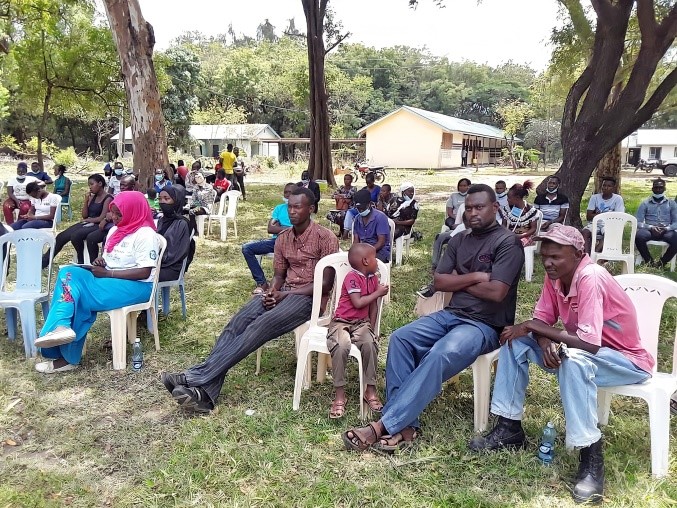Mombasa parents go all out to keep children in school

It was on October 21, 2020 that news broke that four teachers at Star of the Sea Girls’ and eleven from Tononoka high schools had tested positive for COVID-19.
Coming nine days after government-ordered phased reopening of learning institutions, the report caused panic. It also provided ammunition for critics who had warned that the reopening was hasty and ill-advised. As it turned out, it was merely a storm in a tea cup. The two schools were closed for 14 days before re-opening. Since then, “the situation has been calm,” Opemi Robert, chairman of National Parents’ Association in Mombasa, says.
Mr Opemi is reassuring. “All things considered, the situation has been better than expected in the whole of Mombasa. There are instances of what you might call normal discipline issues pertaining to young people and children, but nothing out of the ordinary,” he says.
Yet when it comes to Mombasa, ‘ordinary,’ is a relative term because they do have certain unique challenges. “We have major problems with drugs,” Opemi says in response to a question. “Mombasa historically has a widespread problem of drug abuse among young people. Drug trade thrives and the substances are readily available. The Corona virus-occasioned school break did not help matters at all. Many children have been affected. Miraa (khat) is rampant and innocent children have been introduced to it during the long period of inactivity.”
According to Opemi, the reopening of schools is a much-needed intervention to reign in the children’s indiscipline. School, he says, restricts their idleness and denies them of too much free time which they do not know how to utilize well without supervision. “Besides drugs, incest has also been reported, especially among cousins,” says Opemi, giving life to the words of novelist Leo Tolstoy that “cousinhood is a dangerous neighbourhood.”
However, that is as far as the parents are willing to let things fall. Instead, they are working to redeem the situation. For instance in one case where a girl has got pregnant, they are working with the authorities of a school to both help the girl back to school and also identify the person who put her in the family way.
“Both the law of nature as well as the government stipulates that we care for children even when they are pregnant. We are not going to stand by and watch our daughters’ lives come to ruin because of one misstep or accident in life,” Opemi says.
At the same time, they have to contend with the issue of parents’ loss of income. “Parents want their children to go back to school, however fees is a challenge. Most parents depend on employment or business, all of which were affected by COVID-19. Jobs were lost and businesses crashed,” Opemi says. “But that isn’t going to stop us. We’re acting.”
The parents are working locally, meaning they work with the schools which their children attend. For instance parents of both Murama Secondary and Consolata Primary schools contributed hand-washing facilities including one water tank per school. They also donated soap.
“We have gone further,” Opemi says. “We provide moral support for the children. I’ve been to schools to talk with students, both primary and secondary, about COVID-19. I tell them to follow World Health Organisation (WHO) protocols. We also have one-to-one talks.”
Among the raft of measures they’ve put in place is constantly following up with the teachers to remind them to put too much academic pressure on the children. “It’s a difficult and fine point – to not pressure the children academically. We had that discussion among parents, teachers and the boards. It is an aspect of showing sympathy with the children’s situation,” Opemi explains.
One of the ways of encouraging the children is by sharing examples of people who have succeeded against challenging odds. They encourage visitation by parents and every school has a parents’ leadership. The parents spend between 40 minutes and 1 hour in a single session, doing their best to give the children belief that success is possible. “The aim is to do away with the fear of failing,” Opemi says.
These parents believe their efforts are bearing good fruit because no instances of over-the-top indiscipline have occurred in Mombasa as have in other parts of the country. It indeed is good news.
Our Services
View our Centre for Behaviour Change and Communication Services.













